Showing 1-10 of 16 results
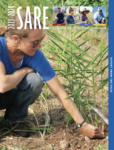
2023–2024 Report from the Field
SARE grants havehelped our viabilityas a business anddemonstrated thatsmall businessescan make a positiveimpact on theenvironment when wedevelop relationshipswith each other forthe benefit of all. Jeanine SeabrookGlass Rooster Cannery Letter from the Director I have always appreciated the value of long-term research as well as the long-term impact of both applied and basic research. The core […]
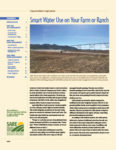
Smart Water Use on Your Farm or Ranch
As producers throughout the nation grow increasingly concerned about water scarcity, farmers, ranchers and agricultural educators are beginning to explore new, conservation-oriented approaches to water use.
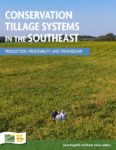
Conservation Tillage Systems in the Southeast
This production manual provides comprehensive guidance on conservation tillage systems for farms in the southeastern United States. It covers the core components of conservation tillage systems and includes both regional considerations and producer experiences.
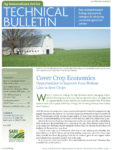
Cover Crop Economics
Cover crops can build soil health, control weeds, conserve moisture, provide grazing opportunities and more. But when do they start to pay for themselves? This analysis looks at the economics behind different management scenarios to determine if cover crops are likely to improve profitability in one, three or five years of use in corn and soybean rotations.
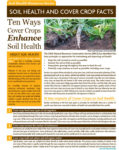
10 Ways Cover Crops Enhance Soil Health
Soil health is a hot topic these days, one that is justifiably receiving considerable attention from farmers and their farm advisors. This short fact sheet highlights some of the key ways that cover crops improve soil health by influencing the biological and physical characteristics of the soil.

Improving Soil Health Through Cover Crops
Farmers around the country are discovering the power of cover crops to curb erosion and improve soil health. This video is from Pennsylvania, where a Penn State researcher and a grain farmer are partnering to spread the word.

Cover Crop Innovators Video Series
Find short video profiles of farmers around the country who are using cover crops on their land.

Cover Crops for Soil Health Workshop
All session recordings and slide presentations from this three-day professional development workshop are available online. Hosted by Northeast SARE and Delaware State University in March 2016, this event addressed the latest research on the benefits and successful management of cover crops in grain, vegetable and animal production systems.
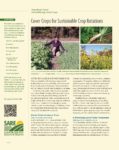
Cover Crops for Sustainable Crop Rotations
Cover crops are one of the best ways to improve soil health, reduce off-farm inputs and protect natural resources. Find a wealth of educational materials developed out of decades of SARE-funded cover crop research.

2014 National Conference on Cover Crops and Soil Health
All session recordings and slide presentations from the National Conference on Cover Crops and Soil Health are available online. Held in 2014 in Omaha, Neb., the event brought together 300 agricultural leaders and innovators to explore how we can make American agriculture more sustainable through improved soil health. Attendees represented agricultural industry, the farm community, academia, government, commodity and conservation organizations.